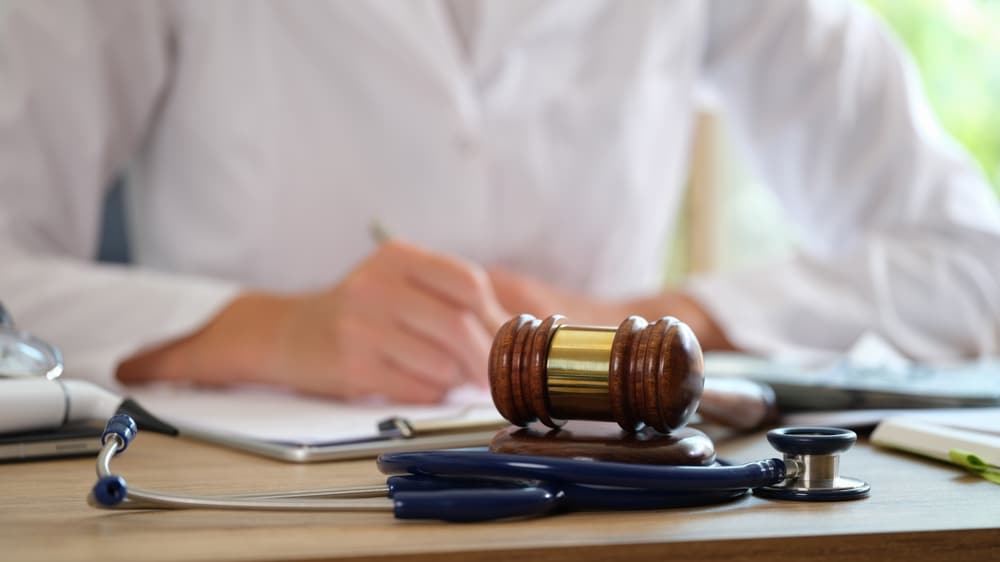Proper Testimony For Civil or Criminal Hearings
The law is a complex matter. No matter how compliant an individual is, there may be times when incidences happen, whether civil or criminal. A great attorney is needed whether an individual is a plaintiff or a defendant.
The old adage, “The person who acts as their own attorney has a fool for a client,” is not without merit. Attorneys do more than prepare the facts of a case. They do more than prepare their own work. They coach their clients on how to testify.
Testifying correctly, whether before a judge, a jury, or during arbitration and negotiation, is a critical component in winning either an award or being found not guilty in a criminal case.
Being on the stand is frightening for most individuals. It is something that is not common in their lives unless they are in law enforcement or other similar professions.
Many cases either fall through or receive less compensation civilly due to bad testimony on the part of the defendant or plaintiff. Other causes for lost cases also include false testimony and incorrect DNA analysis, but these generally are criminal convictions.
This is according to the studies done by the Innocence Project, which incorporated science into the study of faulty memory. In any case, civil or criminal, although it can seem to a defendant or plaintiff that an attorney is repeatedly coaching them, this is necessary.

Necessities for Proper Testimony
There is a methodology for testifying. Seasoned attorneys know this and work with clients on these methods. Here are just a few, but they are the most advised.
- Focus on being relaxed
This of course, is easier said than done, but a nervous client who is testifying does tend to come off as guilty to either a judge or a jury. There were Harvard studies done on this.
Next to nervousness, acting angrily, even though it may be justified when falsely accused, can also make an individual seem less believable during a civil or criminal hearing.
- Look any judge or jury in the eyes
This type of behavior always shows reliability and truthfulness, even outside a courtroom. Refusing to look at others does not impart a sense of trust or truth-telling.
The Guardian, a well-known data science publication, did studies on this. While it cannot be construed as factual in all cases, it did take into account what other individuals perceive with eye contact.
The Guardian studied “blink rates,” and blinking at a fast pace seemed to establish that others became suspicious of individuals with a high blink rate.
- The “Silence is Golden Rule”
Any good attorney cringes as soon as a client starts embellishing a question. As an example, it is good to study the testimony of police officers by attending court hearings.
When asked, for example, the color of a vehicle, they will give a curt answer such as “red” or “blue,” etc. Nothing more. Just a one-word answer. They wait for the next questions without providing anything more specific than what is asked.
It can be difficult to do this, but it does not open doors for the opposing attorney to walk through and pin down issues that will affect a case. While not all questions can be one-word answers, the less said, the better. There is never any need to elaborate on a question.
- Occasionally glance at your attorney
Do not stare or look for advice at this point. The body language of an attorney for either the plaintiff or defendant can tell a witness a great deal about how they are doing on the witness stand.
Although attorneys can make objections, they are limited to the rules of law and the rules of the court. If testimony is falling outside their comfort level, their body language does show this. A tense attorney will have tense body language, while a relaxed attorney will have the opposite. This does show how well the testimony is proceeding.
- Practice testifying
Attorneys will generally practice testimony and go over behaviors many times before a hearing or trial. Always pay attention and absorb the basics they are teaching.
It may seem unnecessary, but it is part of the duty of an attorney to ensure each client knows how to present themselves the best in any case. In all cases, the more practice done on testifying, the better the outcome. Taking notes even and practicing on one’s own also helps.
Look in a mirror and judge body language, tone of voice, and overall demeanor when practicing.
- Do not lie
This should not have to be said, but individuals panic when on the stand. Telling even one small lie makes the entire testimony suspect.
It can even lead to fines or other penalties. This is a definite “no-no”. If a lie slips out in a moment of panic, correct it immediately and apologize! Individual testimony is sworn testimony and is subject to penalties due to perjury.
Conclusion-Proper Testimony-Civil or Criminal Proceedings
Proper testimony is critical, and a great attorney will go over all the specifics before any hearing for any case. If faced with either a civil or criminal hearing as either a defendant or plaintiff, Christian J. Hoey, ESQ, represents a great portion of Southeastern PA.
Based in Paoli, PA, the team of Hoey Legal is easy to reach for a free case evaluation by a contact form or via phone: 610-647-5151. Decades of experience make Attorney Hoey the perfect choice for civil or criminal actions.
For more information on all our law services, visit us at HoeyLegal.com or call us at (610) 647-5151.
